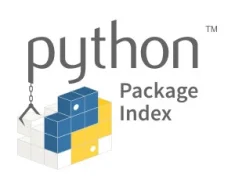
Access to justice has become an increasingly pressing issue nationwide, particularly for individuals who lack the means to navigate the complex legal system. Colorado, like many other places, is not exempt from such challenges. A recent report from the Colorado Access to Justice Commission highlighted the growing number of civil justice issues faced by Coloradans in various domains such as housing, safety, family, health, and economic security. Unfortunately, most individuals have to confront these issues without professional legal assistance, despite their limited understanding of the intricacies of the civil justice system.
Some consider technology, specifically Generative AI, as a potential solution to address the shortcomings in access to justice. Over the past year, Generative AI has made remarkable progress in generating sophisticated content. OpenAI’s GPT-4, for instance, has demonstrated its ability to produce valuable and cost-effective legal materials. Experts in the field of law and technology have already begun utilizing and refining the capabilities of Generative AI to create legal content.
To delve deeper into this topic, a panel of experts will gather for the upcoming AI Ethics Lecture series. Scheduled for October 24th, the event aims to examine the specific challenges of access to justice, the current state of Generative AI tools, and the advantages and disadvantages of their expanded use in legal counseling. Moreover, the discussion will explore whether any revisions to the existing Colorado Rules of Professional Conduct are necessary to accommodate Generative AI. The event will also reflect on the core principles of being an attorney and how to effectively serve the interests of clients.
The event will kick off with a casual dinner and networking session at 5 pm, followed by the official program at 5:30. To encourage audience participation, the evening will conclude with an interactive Q&A session, allowing attendees to engage with the experts and further explore the topics presented.
-
What is Generative AI?
Generative AI refers to a branch of artificial intelligence that focuses on machines’ ability to generate original and unique content, such as text, images, or music, that was not explicitly programmed into them. -
What are the advantages of using Generative AI in access to justice?
Generative AI has the potential to provide valuable and cost-effective legal content, making it more accessible to individuals who lack the financial means to hire professional legal assistance. -
Are there any concerns about the expanded use of Generative AI in legal counseling?
Some concerns regarding the use of Generative AI in legal counseling include the potential for bias or errors in the generated content, as well as the impact on the role of human attorneys. -
Will the event address the ethical implications of using Generative AI in access to justice?
Yes, the AI Ethics Lecture series aims to explore the ethical considerations surrounding the use of Generative AI tools in the legal field, particularly in terms of access to justice.
Sources:
Colorado Access to Justice Commission,
Silicon Flatirons,
Colorado Law

Marcin Frąckiewicz to uznany autor i bloger specjalizujący się w komunikacji satelitarnej i sztucznej inteligencji. Jego wnikliwe artykuły zagłębiają się w zawiłości tych dziedzin, oferując czytelnikom głębokie zrozumienie złożonych koncepcji technologicznych. Jego prace charakteryzują się przejrzystością i dokładnością.



